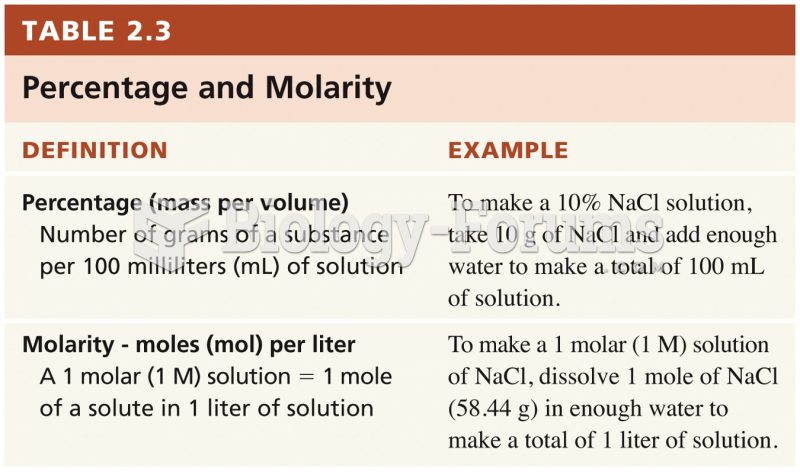This topic contains a solution. Click here to go to the answer
|
|
|
Did you know?
As many as 20% of Americans have been infected by the fungus known as Histoplasmosis. While most people are asymptomatic or only have slight symptoms, infection can progress to a rapid and potentially fatal superinfection.
Did you know?
After 5 years of being diagnosed with rheumatoid arthritis, one every three patients will no longer be able to work.
Did you know?
Excessive alcohol use costs the country approximately $235 billion every year.
Did you know?
On average, the stomach produces 2 L of hydrochloric acid per day.
Did you know?
Eat fiber! A diet high in fiber can help lower cholesterol levels by as much as 10%.







